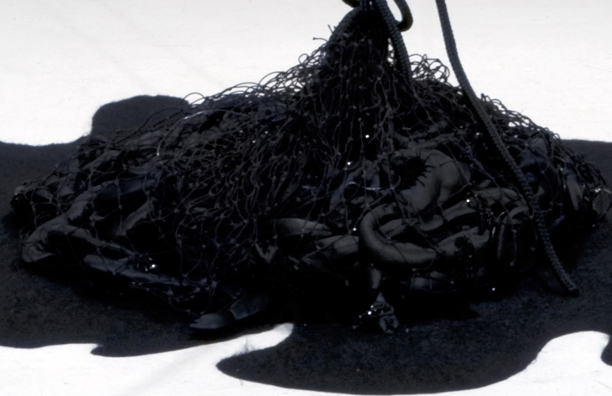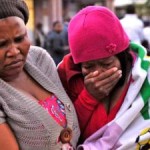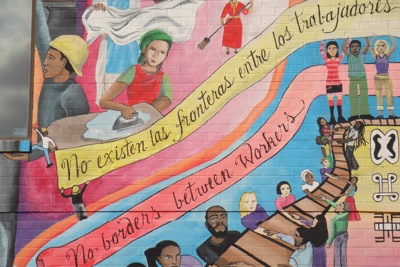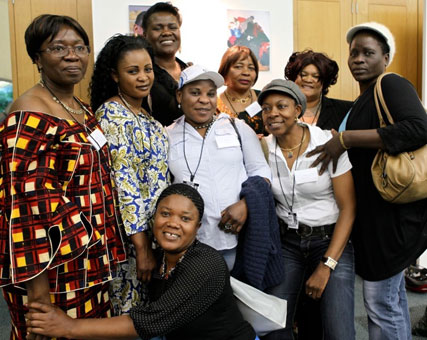
In many parts of the world, prisons have become the principal sites for people living with mental illnesses. In the United States, jails and prisons increasingly house the mentally ill. It is estimated that, in the United States, for every person living with severe mental illness in hospital, there are three currently in prison or jail. In Arizona and Nevada, the number is ten mentally ill people in prison and jail for every one in hospital. For women, the numbers are worse yet. For women living with mental illness in the United States, prison is the new pink. The final coup de grace is when the inmates living with mental illness are described as putting a strain on the prison system. It’s their fault … of course. The same story occurs elsewhere. In Canada, for example, mentally ill prisoners are said to flood the system. Apparently, this is what democracy looks like.
But what happens when people living with mental illness end up in prison? What exactly is their treatment `protocol’? Too often, it’s long term solitary confinement. Colorado may be the solitary confinement capital of the world. In Colorado, it’s customary to lock up mentally ill patients … for their own good. Of those in solitary confinement, it’s estimated that four out of every ten is living with developmental disability or with mental illness. Despite that arithmetic, reformers have yet again failed to persuade the Colorado legislature that perhaps, just maybe, another prison is possible. The madness continues.
Mary Braswell knows something about this form of State, and corporate, madness. Braswell is grandmother to Frank D. Horton. She is also his `conservator’, or legal guardian. Frank Horton is an African American adult living with mental illness, who has had a number of run-ins with the law. At one point, he missed his parole appointment, and so was taken to prison, specifically to the Metro Nashville Detention Facility, run by Corrections Corporation of America, or CCA. That’s when things went from bad to worse to near fatal.
According to Horton’s attorneys, his intake papers suggested a history of psychological and mental illness, with a likelihood of schizophrenia. The system `recognized’ the symptoms. And so what happened? Horton was put in general population, where, within a month, he started fighting, or attacked, his cell mate, and was placed in solitary. His cell mate said Horton was hearing voices.
Once in solitary, not surprisingly, Horton’s condition deteriorated … rapidly. He began refusing to leave solitary. Soon, he was allowed to stay in solitary, permanently. This meant nine months without a bath or shower, nine months with no one cleaning his cell. Nine months.
Nine months of guards walking past, knocking the door, asking if he was still alive, and then moving on. Nine months.
Finally, in January 2008, a guard, Patrick Perry, realized what was happening, stepped in and informed the Metro Public Health Department: “Patrick Perry, an officer at the detention facility from August 2006 to January 2008, began to notice that something was wrong late in 2007. In January 2008, Perry attempted to communicate with Horton, but Horton was speaking “gibberish.” Perry testified that Horton’s cell was filthy, that there were several food trays on the floor and bacteria growing in the toilet, that Horton’s beard and hair were “matted” and “out of control,” and that it appeared Horton had not washed himself or had his cell cleaned for months.”
For nine months, Frank Horton was left to live, or die, in filth that grew worse and worse, until, for some, he became indistinguishable from his surroundings.
Frank Horton was removed to a special facility in April 2008. Patrick Perry was fired immediately, on that day in January. Horton’s grandmother, Mary Braswell, has struggled for three years to get some kind of accountability, some element of responsibility, for the abuse into which her grandson was dumped. Two weeks ago, at last, she was given permission to proceed. CCA, no doubt, will appeal that decision.
On one hand, Frank Horton’s story is a common one, and sadly so is that of Mary Braswell, the story of prisoners living with mental illnesses and of the women, grandmothers, mothers, who try to care for them. At the same time, the story of prison driving people into deeper mental illness is also all too common. Young women and men, largely of color and largely low- to no-income, enter into prison, and when they come out, their minds are never the same.
And they call it democracy, this universe of systematic deprivation and devastation of minds and bodies. Rather call it Charenton, the Bedlam where the patients sing: “We’ve got Human Rights, we’ve got the right to starve; we’ve got jobs waiting for work; we’ve got Brotherhood, we’re all covered with lice; we’ve got Equality, we’re equal to die like dogs ….
“Marat, we’re poor, and the poor stay poor.
We want our rights and we don’t care how.
We want our revolution NOW”.
(Image Credit: Goldberg & Osborne)





